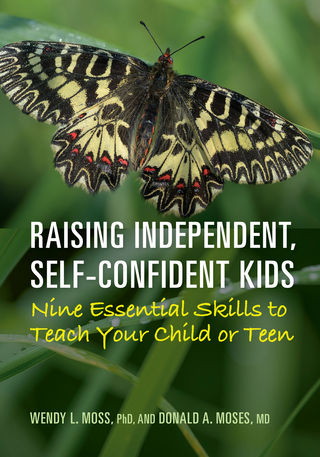Executive Function
Raising Independent, Self-Confident Kids
The Book Brigade talks to psychologist Wendy Moss and psychiatrist Donald Moses.
Posted February 15, 2018

Sometimes parents attempt to solve their children’s problems for them. While it may cut out a lot of whining, it can have the unintended effect of robbing a child of a necessary life skill: a sense of self-agency. More often, it’s better to let a kid push through their own frustrations.
What are executive functioning skills and why are they important?
Executive functioning skills, in general, are skills that help people to be organized, start, and then follow through on tasks. You have heard the phrase, “ready, set, go.” Sometimes, children aren’t sure how to get ready to begin a task, struggle to know when they are set to move forward with it, and are confused about how to get started on it.
With all of the expectations placed on children in school, how can parents help kids build up executive functioning skills?
There are many ways that parents can help children to develop their executive functioning skills. For example, some skills can begin to be taught simply by using a calendar to teach time management. Parents can model how to get organized to work on a task. They can help kids to figure out how to prioritize their work so they begin to understand the process, and guide children to know how long they can persevere without a break to meet deadlines. They can teach children to motivate themselves through the use of incentives. An incentive could simply be that the child spends a few minutes shooting baskets or listening to a favorite song before moving on to the next homework task. For long-term projects, using a picture of a ladder where children write on each step what is needed to build to the completed task can be a useful visual aid for breaking down a large assignment into manageable segments.
Children who also know when to be self-reliant and when to ask for help are going to be people who can generally feel more confident that they can get through the work.
Is it a parent’s job to help a child to feel content and not frustrated in life?
Of course, children need to feel love, safety, and happiness to thrive. However, it’s unrealistic to think that anyone can go through life without any frustration. Having the opportunity to experience and tolerate frustration is a key element to becoming a confident child, teen, and adult. Some children become overwhelmed when they can’t get immediate gratification because they don’t think that they can cope with the frustration. This can lead to temper tantrums, crying, or angry outbursts.
The good news is that overcoming minor frustrations can have a major impact. Imagine if a 6-year-old starts having a tantrum when he can’t instantly jump on his new two-wheeler bike and ride down the street with his older sister. That’s a time to acknowledge his feelings, teach him how to calm himself, begin teaching the skill that he hoped to have instantly mastered, and eventually show him that these skills can lead to his goal, down the road.
Parents who have seen the pride on their child’s face after she overcomes an obstacle knows that overcoming frustration can lead to gratification. Therefore, using the word “no,” when necessary, or supporting but not taking over when children face age-appropriate struggles, does not make parents too strict. Rather, they are preparing their children for independent life.
Kids are coming forward as transgender, gay, non-binary, and more. Do parents need to parent such children differently?
There are six important ingredients for parenting all children but that are especially helpful while guiding children who are transgender, gay, or non-binary to feel good about themselves. They include acceptance, understanding, love, support, respect, and discussion.
If parents keep the lines of communication open with their children, it is likely that their children will confide in them, share information related to their sexual identity and general identity, and diminish feelings of alienation. For instance, transgender youth have a high rate of suicidal thoughts; having a loving, supportive family that values them for who they are as people regardless of gender identity can make a strong impact on many of these individuals.
Why did you wish to write this book?
It is imperative that parents understand the need, and allow their children, to face age-appropriate frustrations, develop executive functioning and empathy skills, and gain problem-solving, decision-making, and coping strategies. We feel that by teaching skills to young children and adolescents, they can more easily internalize them and increase their chances of comfortably being independent. Of course, it is okay for all of us to sometimes rely on others, but teaching when and how is also important. We hope to guide parents in their efforts to raise independent, confident kids.
What is the most important point you want to convey?
Many children will eventually move out of their parents’ home and work to navigate life as adults. We want to help parents explore numerous tools that they can use to empower their children to do this in a confident and independent manner.
About THE AUTHOR SPEAKS: Selected authors, in their own words, reveal the story behind the story. Authors are featured thanks to promotional placement by their publishing houses.
To purchase this book, visit:
Raising Independent, Self-Confident Kids





